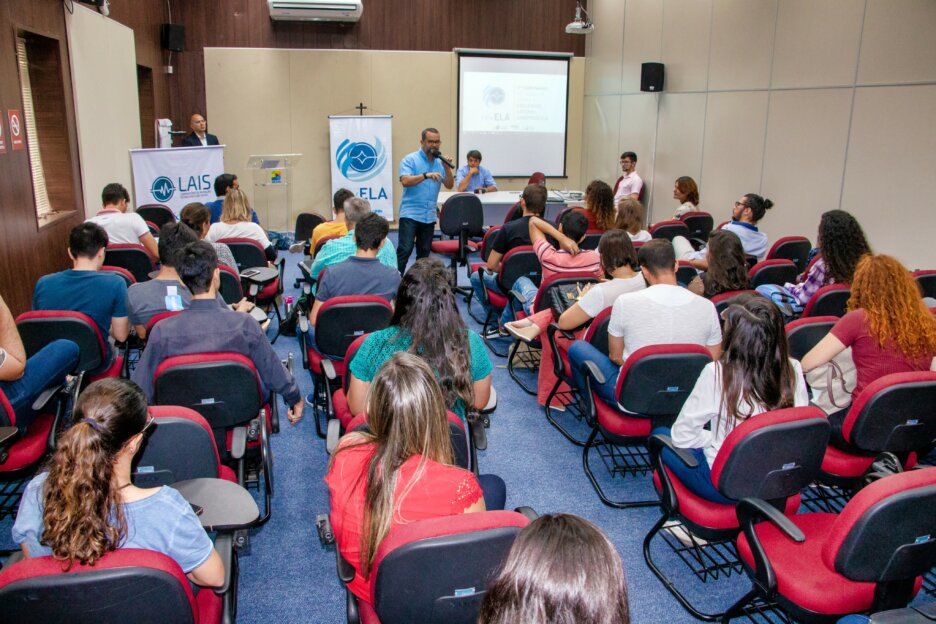By Gabriel Mascena
This Tuesday (19) was the 1st Research Seminar on Amyotrophic Lateral Sclerosis (ALS), where approximately 30 researchers from the Laboratory of Health Innovation (LAIS) presented papers related to the disease. The event is a way to bring together knowledge from different laboratory research bases that are focused on the development of assistive technologies and software to improve the quality of life of patients diagnosed with ALS.
The opening was made by the LAIS coordinator, Professor Ricardo Valentim. He spoke about the meaning and operation of the “revela” Project, developed by the laboratory in partnership with the Ministry of Health and which focuses on assisting ALS patients.
Subsequently, there were also speeches by one of the project coordinators, Professor Danilo Nagem, who presented perspectives on collective research within revELA, and researcher Daniele Montenegro, who presented important information on project management and governance.
“The event was designed to bring all participants together and give everyone a vision of the project,” explains Danilo, also highlighting the importance of the project to the community affected by the disease. “When the patient receives news of the disease, he does not know what to do. First comes a shock, the healers do not know how to treat, generates a whole repercussion within the family. The project aims to try to minimize this wear, aims to help to improve the patient’s life, reducing the impact and rehabilitating some of the characteristics that had before the diagnosis of the disease, ”he said.
For Daniele Montenegro, the main objective of the project is to provide the Unified Health System (SUS) with new tools that help professionals in ALS cases, since the treatment of the disease is difficult and requires a multidisciplinary team. “Having tools that assist the team in patient care is extremely important, both from the point of view of the project and the patient itself.”
About Amyotrophic Lateral Sclerosis
ALS is a degenerative disease that attacks the nervous system and causes irreversible motor paralysis. It is currently one of the most feared diseases known and is side by side with diseases such as Parkinson’s and Alzheimer’s. Among numerous cases, one of the best known is the physicist Stephen Hawking, internationally recognized for his contribution to science.
According to the Paulo Gontijo Institute, an institution that tracks patients with ALS and advances in coping with the disease, about 200,000 people have the disease worldwide. In Brazil, there are about 12 thousand, which is equivalent to more than 5% of patients worldwide.
According to data from the Ministry of Health (MS), drugs and treatments are only palliative to help improve the quality of life and slow the course of disease.





